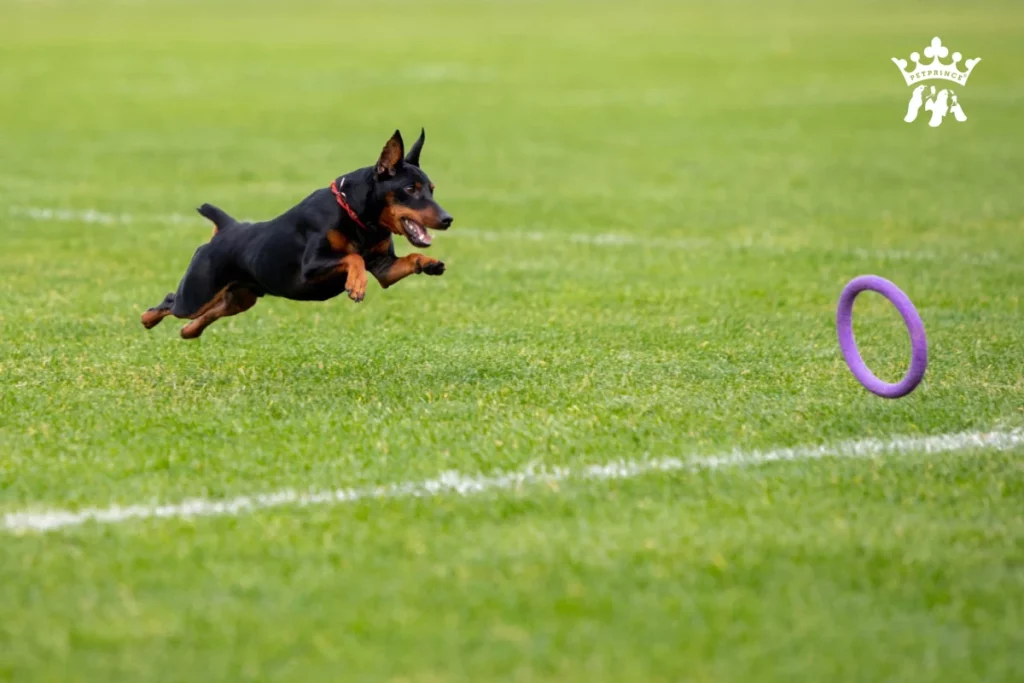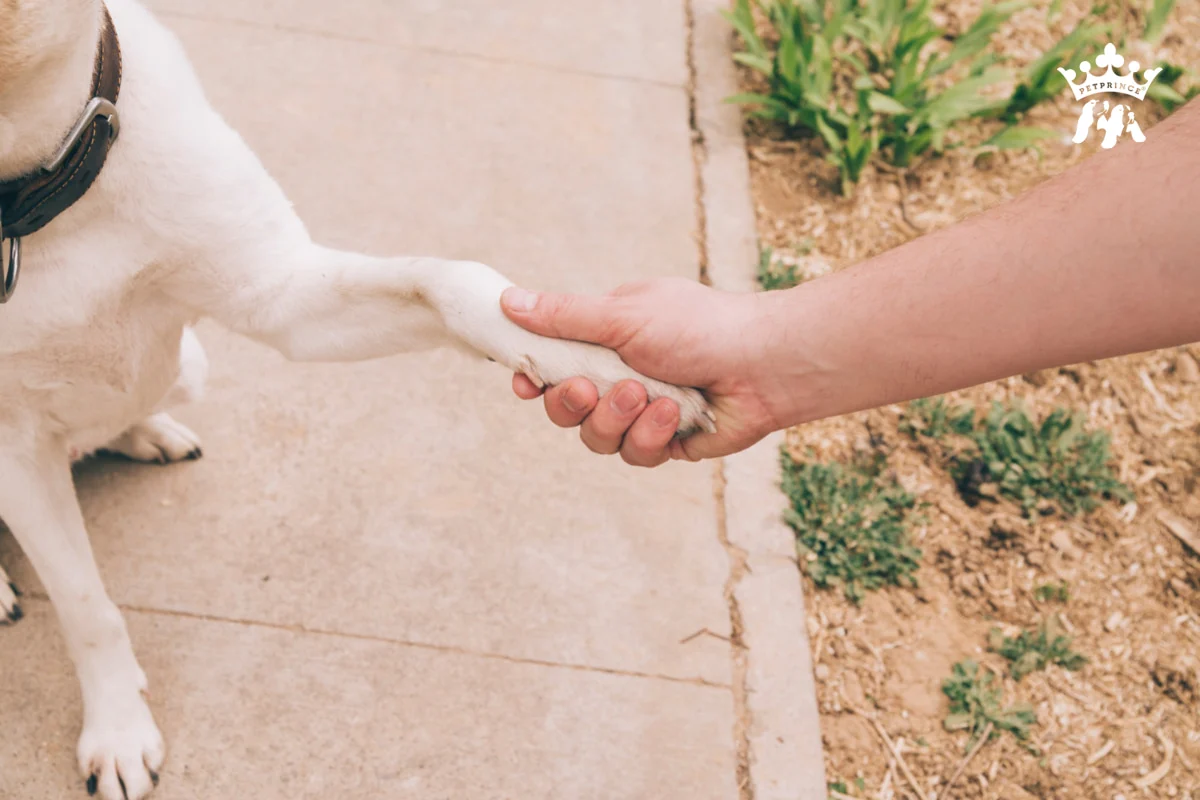Bringing a fluffy bundle of joy home in the form of a puppy is an experience brimming with excitement and wonder. But along with the adorable cuddles and playful antics comes the responsibility of shaping your furry friend into a well-behaved and obedient companion. Puppy training, while a rewarding journey, can also be riddled with challenges. Some common mistakes, however, can inadvertently lead to disobedience and frustration for both you and your pup. Let’s delve into 8 of these missteps and discover how to avoid them, paving the way for a harmonious relationship with your four-legged best friend.

Mistake 1: Inconsistent Training Methods
Imagine learning a new language, but your teacher keeps changing the rules! This is precisely how puppies experience inconsistent training. Today, jumping on the couch might be met with a stern “No,” while tomorrow, it earns a playful tussle. This inconsistency creates confusion and hinders learning. To ensure clarity and success, establish clear commands, consistent corrections, and a predictable training routine. Stick to your chosen training method, be it clicker training, positive reinforcement, or a combination, and implement it consistently across all situations.
The Importance of Consistency in Training
Puppies are like sponges, soaking up everything they see and experience. They are constantly learning and adapting to their environment. Inconsistent training methods can confuse them and make it difficult for them to understand what is expected of them. For example, if one day you reward your puppy for sitting when you say “sit,” but the next day you scold them for the same behavior, they will not understand why they are being punished. This can lead to frustration and even disobedience.
Consistency is key in any type of training, and it is especially crucial when it comes to puppies. By using the same commands, corrections, and rewards consistently, you are providing your puppy with a clear understanding of what is expected of them. This will make the learning process much easier for them and lead to better results.
Establishing a Training Routine
In addition to using consistent methods, it is also important to establish a training routine for your puppy. This means setting aside dedicated time each day for training sessions. Puppies have short attention spans, so it is best to keep training sessions short and frequent. This will help them stay engaged and focused on the task at hand.
It is also important to train in different environments and situations. This will help your puppy generalize their training and understand that the rules apply no matter where they are or what is going on around them. For example, if you only train your puppy in your living room, they may not understand that the same rules apply when you take them to a park or a friend’s house.
Mistake 2: Not Establishing Clear Rules and Boundaries

Just like human children, puppies thrive on structure and boundaries. Without clear rules and boundaries, they can become confused and act out. It is important to establish these rules and boundaries early on in your puppy’s life to prevent behavior problems from developing.
Setting Boundaries in the Home
Puppies are naturally curious and love to explore their surroundings. However, this can sometimes lead to destructive behavior, such as chewing on furniture or getting into things they shouldn’t. To prevent this, it is important to set boundaries in your home. This can include using baby gates to block off certain areas, keeping doors closed to rooms you don’t want your puppy to enter, and using a crate when you are unable to supervise them.
It is also important to establish rules for behaviors such as jumping on furniture, begging for food, and barking excessively. Consistently enforcing these rules will help your puppy understand what is and isn’t allowed in your home.
Setting Boundaries with People and Other Animals
In addition to setting boundaries in the home, it is also important to establish boundaries with people and other animals. This includes teaching your puppy not to jump on people, not to play too rough, and to be respectful of other animals. It is important to socialize your puppy early on so they learn how to interact appropriately with others.
It is also important to teach your puppy that you are the leader and they must respect your authority. This can be done through consistent training and by establishing yourself as the one who sets the rules and boundaries. This will help prevent your puppy from becoming dominant or aggressive towards you or others.
Mistake 3: Using Punishment Instead of Positive Reinforcement

Many people believe that punishment is necessary in order to train a puppy. However, this is not the case. In fact, using punishment can actually be counterproductive and lead to more disobedience.
The Problem with Punishment
Puppies do not understand punishment in the same way that humans do. They do not connect the punishment with the behavior they are being scolded for. This can lead to confusion and even fear of their owner. Punishment can also cause puppies to become anxious and stressed, which can lead to unwanted behaviors such as chewing or excessive barking.
Additionally, punishment does not teach puppies what they should be doing instead. It only tells them what not to do. This is why positive reinforcement is a much more effective training method.
The Power of Positive Reinforcement
Positive reinforcement involves rewarding your puppy for good behavior. This can include treats, praise, and affection. By rewarding your puppy when they do something right, you are reinforcing that behavior and increasing the likelihood that they will repeat it in the future.
Positive reinforcement also helps build a strong bond between you and your puppy. They will learn to trust and respect you as their leader, rather than fearing you. This will lead to a happier and more well-adjusted puppy.
Mistake 4: Skipping Basic Obedience Training
Some people may think that basic obedience training is not necessary for puppies, but this couldn’t be further from the truth. Basic obedience training is the foundation for all other training and is essential for a well-behaved and obedient dog.
The Benefits of Basic Obedience Training
Basic obedience training teaches your puppy important skills such as sit, stay, come, and leave it. These commands are not only useful in everyday life, but they can also potentially save your puppy’s life in dangerous situations. For example, if your puppy knows the “come” command, they will come to you when called, even if they are off-leash and in a potentially dangerous situation.
Basic obedience training also helps establish you as the leader and builds a strong relationship between you and your puppy. It also provides mental stimulation for your puppy, which is important for their overall well-being.
When to Start Basic Obedience Training
It is never too early to start basic obedience training with your puppy. In fact, the earlier you start, the better. Puppies have a short attention span, so training sessions should be kept short and fun. You can start by teaching simple commands like “sit” and “stay” and gradually move on to more advanced commands as your puppy gets older.
Mistake 5: Not Socializing Your Puppy Properly

Socialization is crucial for puppies to become well-adjusted and friendly dogs. It involves exposing your puppy to different people, animals, and environments in a positive and controlled manner. Unfortunately, many people do not properly socialize their puppies, which can lead to fear, anxiety, and aggression later on in life.
The Importance of Socialization
Puppies have a critical socialization period between 3 and 14 weeks of age. During this time, they are most receptive to new experiences and will form positive associations with people, animals, and environments that they are exposed to. This is why it is crucial to properly socialize your puppy during this time.
Proper socialization helps puppies become comfortable and confident in different situations. It also teaches them how to interact appropriately with other dogs and humans. This will lead to a well-behaved and friendly dog that is a joy to be around.
How to Socialize Your Puppy
Socializing your puppy involves gradually exposing them to different people, animals, and environments in a controlled and positive manner. This can include taking them on walks in different neighborhoods, introducing them to new people and animals, and bringing them to different places such as parks, pet stores, and even busy streets.
It is important to always monitor your puppy’s reactions and make sure they are comfortable and not overwhelmed. If your puppy shows signs of fear or anxiety, take a step back and try again another time. It is also important to reward your puppy for good behavior during socialization, such as remaining calm and friendly around new people and animals.
Mistake 6: Giving In to Your Puppy’s Demands
It can be hard to resist those puppy-dog eyes, but giving in to your puppy’s demands can lead to disobedience and bad habits. Puppies are smart and will quickly learn that certain behaviors will get them what they want. For example, if your puppy barks for attention and you give in and give them attention, they will learn that barking equals attention.
Setting Boundaries and Sticking to Them
It is important to establish boundaries with your puppy and stick to them. This means not giving in to their demands, no matter how cute or persistent they may be. For example, if your puppy is begging for food at the dinner table, do not give them any scraps. This will only reinforce the behavior and make it more difficult to break in the future.
It is also important to teach your puppy that they must earn rewards through good behavior. For example, if your puppy wants to play, they must first sit and wait patiently before you throw their toy. This teaches them that good behavior is rewarded, while bad behavior is ignored.
Mistake 7: Not Being Patient Enough
Puppy training takes time and patience. It can be frustrating when your puppy doesn’t seem to be learning as quickly as you would like, but it is important to remember that every puppy learns at their own pace. Getting frustrated or losing your temper will only hinder the training process and damage your relationship with your puppy.
The Importance of Patience in Training
Puppies are still learning and developing, both physically and mentally. They may not understand what is expected of them right away, and it is up to us as their owners to guide them and be patient with them. By remaining calm and patient, we are creating a positive and stress-free environment for our puppies to learn in.
It is also important to remember that puppies are not perfect and will make mistakes. Instead of getting angry or scolding them, use these moments as teaching opportunities. Show them what they should be doing instead and reward them when they get it right.
Mistake 8: Neglecting Mental Stimulation

Physical exercise is important for puppies, but mental stimulation is just as crucial. Puppies have curious minds and need mental stimulation to prevent boredom and destructive behaviors.
The Benefits of Mental Stimulation
Mental stimulation helps keep your puppy’s mind active and engaged. This can include activities such as puzzle toys, obedience training, and even learning new tricks. Mental stimulation also tires out your puppy, which can be helpful for those with high energy levels.
In addition to preventing boredom and destructive behaviors, mental stimulation also helps prevent behavioral issues such as separation anxiety and excessive barking. It also strengthens the bond between you and your puppy as you work together on different activities.
Incorporating Mental Stimulation into Your Puppy’s Routine
There are many ways to incorporate mental stimulation into your puppy’s routine. Puzzle toys, such as treat dispensers, are a great way to keep your puppy entertained while also providing mental exercise. Obedience training is another great way to stimulate your puppy’s mind and teach them new skills.
You can also switch up your walking route or take your puppy to new places to provide them with new experiences and mental stimulation. Be creative and have fun with it!
Conclusion
Puppy training can be a challenging but rewarding journey. By avoiding these 8 common mistakes, you can set your puppy up for success and create a strong and harmonious relationship with them. Remember to be patient, consistent, and use positive reinforcement to guide your puppy towards becoming a well-behaved and obedient canine companion. With love, patience, and proper training, your puppy will grow into a happy and well-adjusted dog that brings joy to your life every day.
